You’ve negotiated the terms, signed on the dotted line, and the project is underway. But the job isn’t done yet!
Contract closure is a crucial final step that ensures both parties fulfill their obligations and leave the agreement on a positive note. This blog post dives deep into everything you need to know about closing a contract.
Understanding the Meaning of Contract Closure
In its simplest form, contract closure refers to the formal process of finalizing all aspects of a contract. This involves ensuring all deliverables have been met, payments are settled, and any outstanding issues are resolved.
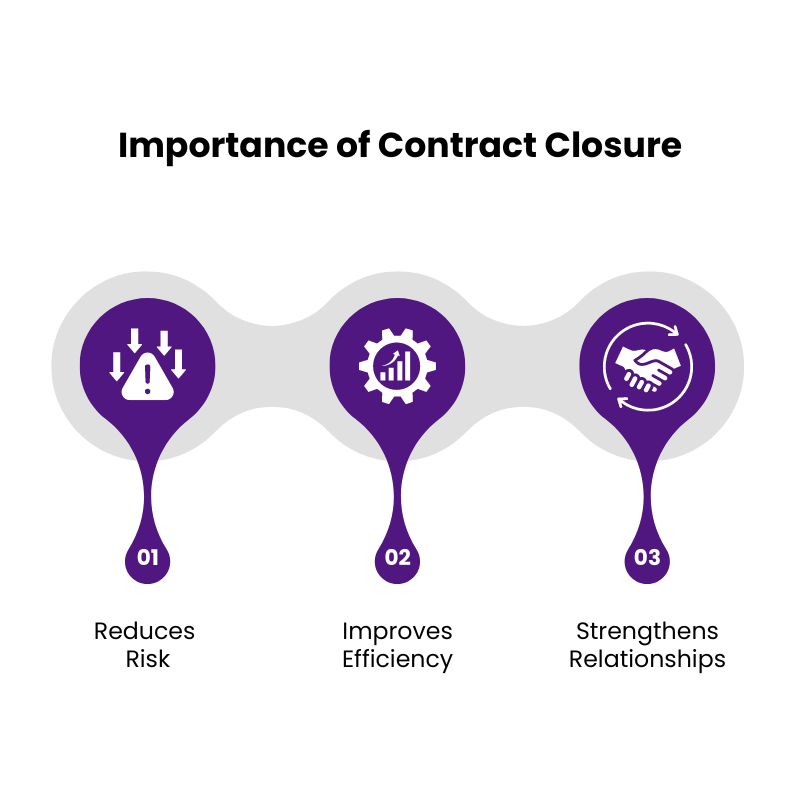
Think of it as putting a neat bow on top of a successful collaboration. Contract closure is important for several reasons:
- Reduces Risk: A properly closed contract minimizes the chances of future disputes or disagreements. By clearly documenting completion and resolving any loose ends, you avoid potential legal or financial complications.
- Improves Efficiency: A well-defined contract closure process streamlines administrative tasks and frees up resources for new projects.
- Strengthens Relationships: A smooth contract closure experience fosters trust and paves the way for future collaborations with the other party.
The Contract Closure Process: A Step-by-Step Guide
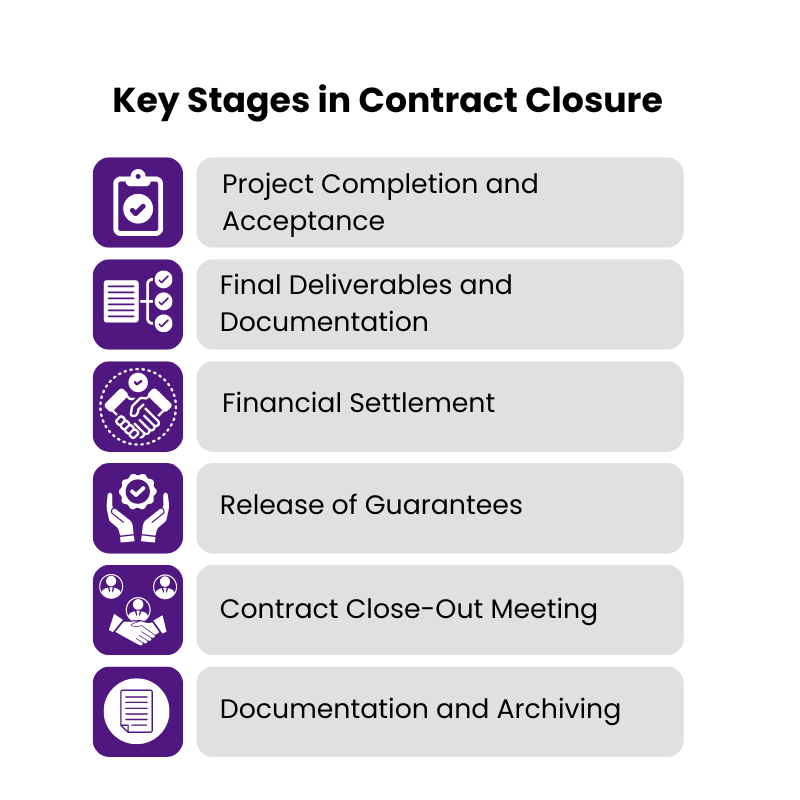
While the specific steps may vary depending on the complexity of the contract, a typical contract closure process follows these key stages:
- Project Completion and Acceptance: Verify that all deliverables outlined in the contract have been completed to the agreed-upon standards. This may involve inspections, testing, or final reviews. Once satisfied, the buyer formally accepts the work in writing.
- Final Deliverables and Documentation: Ensure all final project documents, reports, and materials are exchanged between the parties. This might include user manuals, source code, or any other deliverables stipulated in the contract.
- Financial Settlement: Reconcile all invoices and payments. This includes settling the final payment to the seller, after any potential deductions for incomplete work or delays.
- Release of Guarantees: If the contract involved performance or security guarantees, these are now released upon successful completion of the project.
- Contract Close-Out Meeting: Consider holding a final meeting with all relevant stakeholders to discuss the project’s successes, challenges, and lessons learned. This promotes transparency and fosters a collaborative environment for future projects.
- Documentation and Archiving: File all signed documents, invoices, and communication records related to the contract closure process. This ensures easy retrieval for future reference or during potential contract audits.
The contract closure process can vary slightly depending on the specific type of contract involved.
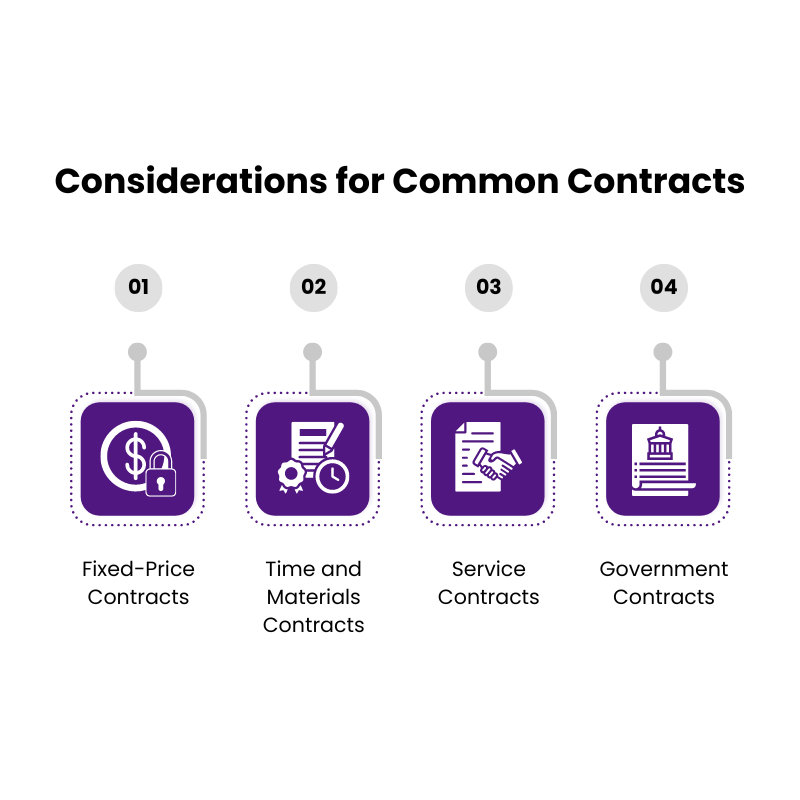
Here’s a brief overview of considerations for some common contracts:
- Fixed-Price Contracts: With fixed-price contracts, the total cost is predetermined. During contract closure, the focus is on verifying that all deliverables have been met within the agreed-upon budget. Ensure all invoices align with the pre-defined scope of work to avoid disputes.
- Time and Materials Contracts: For time and materials contracts, the final cost is based on the actual time and resources expended. The contract closure process involves a detailed review of timesheets and material receipts to ensure accurate billing.
- Service Contracts: Service contracts often involve ongoing deliverables or support over a specific period. Contract closure for these agreements may involve knowledge transfer sessions, ensuring all necessary documentation and training materials are provided to the buyer before the contract expires.
- Government Contracts: Government contracts often have stricter regulations and reporting requirements. The contract closure process may involve additional steps like final inspections or audits by government agencies. It’s crucial to adhere to all specified procedures to ensure a smooth closure.
By understanding the specific nuances of each contract type, you can tailor the contract closure process to ensure a successful and compliant conclusion for all parties involved.
Beyond the Basics: Common Challenges in Contract Closure
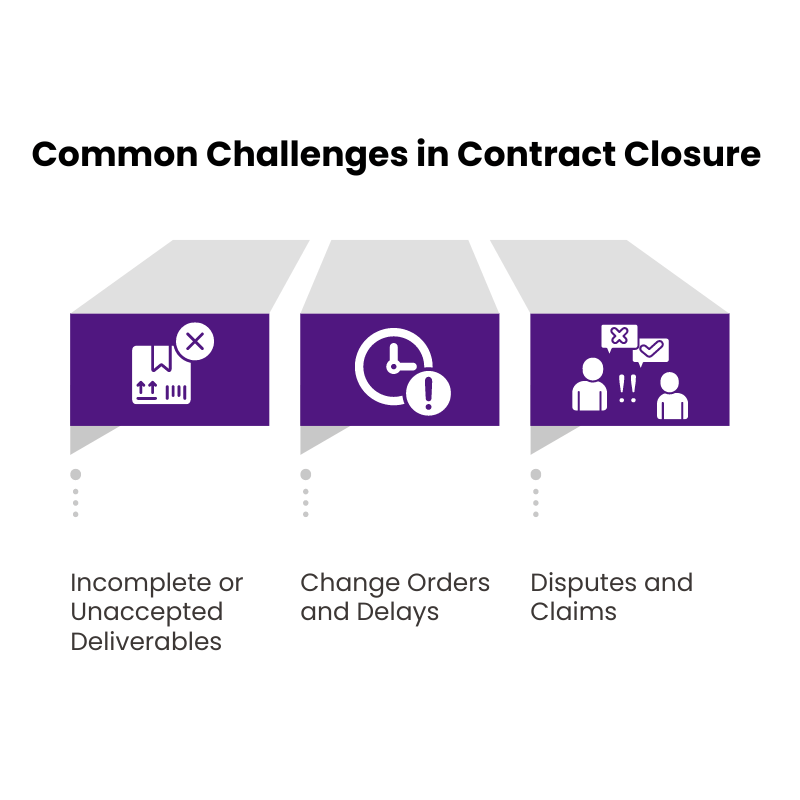
While the process may seem straightforward, several common challenges can arise during contract closure. Here’s how to navigate some of the trickier situations:
- Incomplete or Unaccepted Deliverables: If the seller hasn’t met all the requirements, address the issue promptly. The contract may outline specific steps for resolving such discrepancies, including potential rework or deductions from the final payment.
- Change Orders and Delays: Changes to the project scope or unexpected delays can impact the final deliverables and budget. Carefully review any change orders to ensure proper documentation and authorization. Negotiate adjustments to the payment schedule if necessary.
- Disputes and Claims: In rare cases, disagreements might arise during contract closure. If negotiations fail to resolve the issue, the contract may outline alternative dispute resolution methods like mediation or arbitration.
[Related Post: Mastering Contract Negotiations]
The Importance of Clear Communication in Contract Closure
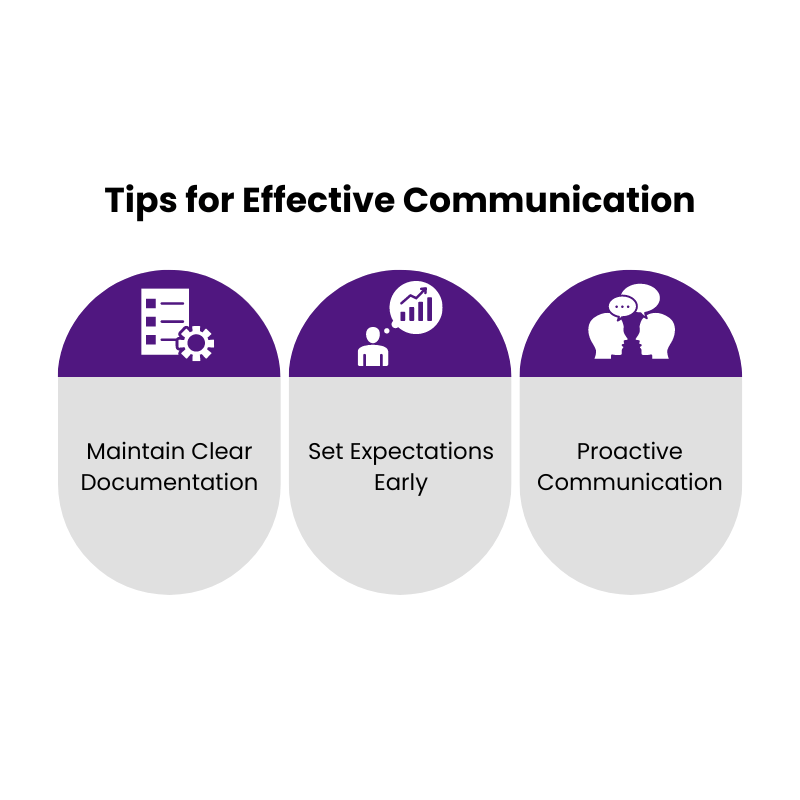
Effective communication is paramount throughout the entire contract closure process. Here are some tips:
- Maintain Clear Documentation: Keep a comprehensive record of all communication related to the project and its closure. This includes emails, meeting minutes, and any change orders.
- Set Expectations Early: During project initiation, discuss the contract closure process with all parties involved. This fosters transparency and avoids confusion later.
- Proactive Communication: Address any potential issues or delays promptly. Don’t wait until the final stages of contract closure to raise concerns.
By following these guidelines and fostering open communication, you can ensure a smooth and successful contract closure experience.
A Successful Close Sets the Stage for Future Success
Closing a contract is more than just paperwork; it’s about finalizing a successful collaboration and building a foundation for future partnerships.
By implementing a structured contract closure process, you can minimize risks, streamline administrative tasks, and strengthen relationships with your contracting partners. Remember, a well-closed contract is a win-win for everyone involved.




